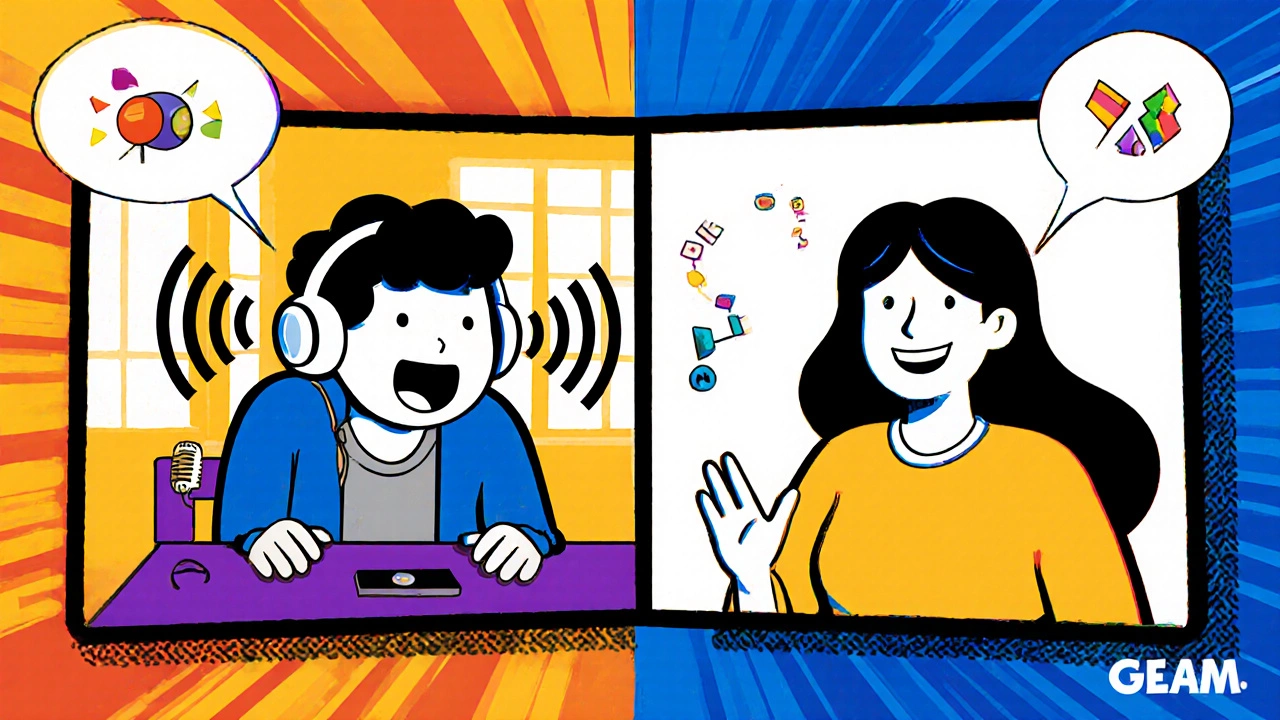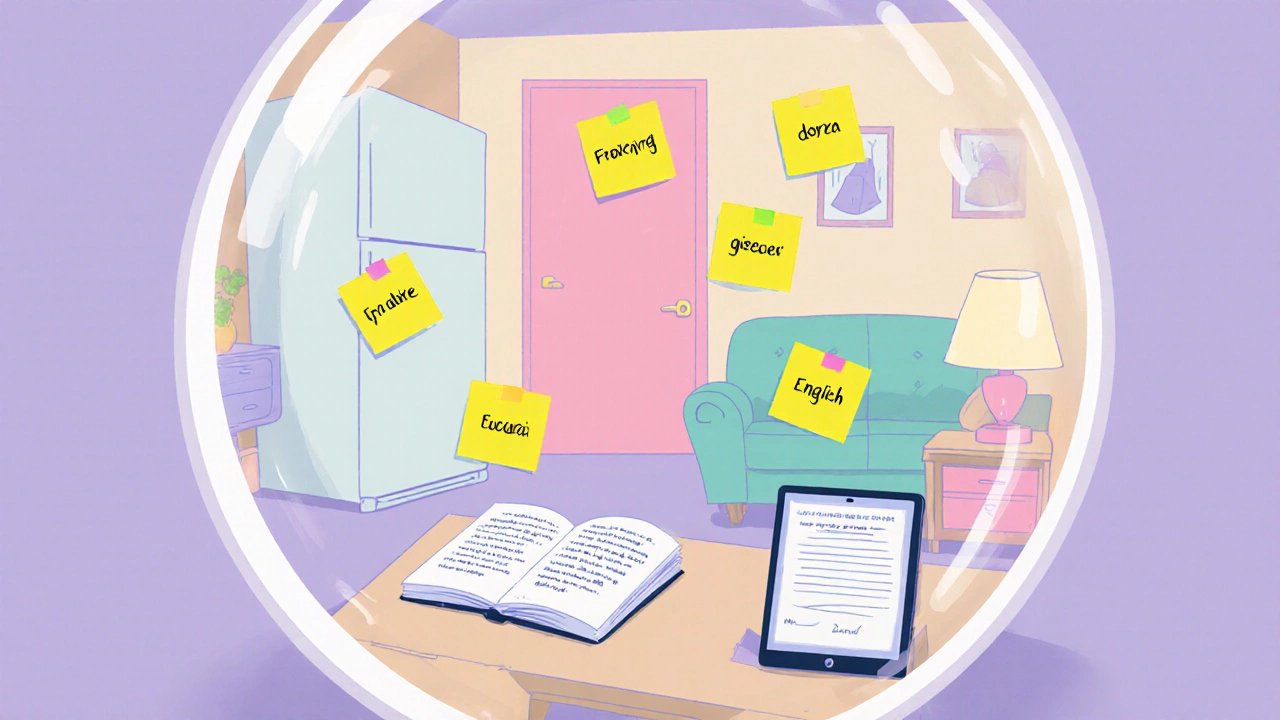If you want to improve English skills, you don’t need a magic formula-just a mix of smart habits, real‑world practice, and the right resources. Below you’ll find a step‑by‑step roadmap that works for busy professionals, students, and anyone who wants to sound more confident in everyday conversation.
Key Takeaways
- Start with a quick self‑assessment to know where you stand.
- Focus on high‑frequency vocabulary and core grammar before chasing perfection.
- Speak daily, even if it’s a 5‑minute monologue in front of a mirror.
- Use technology-apps, podcasts, and online courses-to add variety.
- Create an immersion bubble: change device language, watch native content, chat with partners.
1. Assess Your Starting Point
Before you invest time, figure out what you can already do. A short online placement test (many platforms offer free versions) will tell you whether you’re at A1, B2, or C1 level. Write down three strengths and three gaps-maybe you’re good at reading but stumble on pronunciation. This snapshot becomes your baseline for tracking progress.
2. Build Core Foundations
Foundations are the "building blocks" that let you expand without constantly fixing leaks.
- Vocabulary is the set of words you actively use and recognize. Research shows that the most common 2,000 words cover about 80% of daily conversation. Focus on those first.
- Grammar is the system that links words into meaning. Master simple present, past, and future forms before tackling perfect tenses.
- Use flashcards (Anki or Quizlet) for spaced‑repetition. Add an example sentence that you might actually say.

3. Speak Every Day
Speaking is the skill that improves fastest with frequent, low‑stakes use.
- Find a Conversation Partner is a native or fellow learner who meets weekly for 15‑minute chats. Platforms like Tandem or local meetups work well.
- Practice Pronunciation is the way sounds are formed. Record yourself reading a short paragraph, then compare with a native speaker’s audio. Spot differences in vowel length and stress.
- Use the "shadowing" technique: play a podcast and repeat each sentence instantly, matching rhythm and intonation.
4. Strengthen Listening & Reading
Passive input fuels active output. Choose content that matches your level but nudges you forward.
- Podcasts like BBC Learning English offer 10‑minute episodes with transcripts.
- Read news articles and underline unknown words; later, look them up and create flashcards.
- Switch subtitles on Netflix from English to English-this forces you to read while listening.
5. Leverage Technology & Structured Courses
Online courses give structure, feedback, and a community.
| Method | Cost | Time Commitment | Feedback Quality | Best For |
|---|---|---|---|---|
| Self‑Study (books, apps) | Free‑low | Flexible | None | Budget learners |
| Online Course (e.g., Coursera, Udemy) | $$ | 3‑5hrs/week | Automated quizzes, occasional peer review | Structured progress seekers |
| Language Exchange | Free | 1‑2hrs/week | Real‑time correction | Social learners |
| Private Tutor | $$$$ | 1‑2hrs/week | Personalized, immediate | Fast‑track professionals |
| Immersion Trip | $$$$$ | Full‑time | Natural, continuous | Adventure seekers |
Pick the method that matches your budget and schedule, then stick with it for at least six weeks before switching.

6. Create an Immersion Bubble at Home
Immersion doesn’t require a plane ticket. Small tweaks add up.
- Change your phone, computer, and social media language settings to English.
- Label household items with sticky notes in English (e.g., "fridge", "door").
- Leave a notebook on the kitchen table and write a sentence about your day in English before bedtime.
7. Track Progress & Stay Motivated
Measurement turns effort into results.
- Set SMART goals: "I will be able to give a 2‑minute self‑introduction without hesitation in 4 weeks."
- Record a short video of yourself every two weeks; compare fluency, filler words, and confidence.
- Reward milestones: after completing a podcast series, treat yourself to a movie night in English.
When you see tangible improvement, motivation becomes self‑reinforcing.
Frequently Asked Questions
How much time should I spend on English each day?
Even 15‑20 minutes of focused practice (speaking, listening, or vocabulary) is better than a long, unfocused session. Consistency beats intensity for language acquisition.
Is it better to learn grammar first or speak from the start?
The sweet spot is a hybrid approach: learn the most essential grammar rules (present, past, future) while you start speaking. Too much theory stalls confidence; too little leads to fossilized errors.
Can I become fluent without ever visiting an English‑speaking country?
Yes. Immersion can be simulated at home through media, conversation partners, and changing your device language. The key is to expose yourself to the language in varied contexts every day.
What’s the most efficient way to expand my vocabulary?
Focus on high‑frequency word lists (e.g., the 2,000‑word "General Service List"). Use spaced‑repetition flashcards that pair each word with a personal example sentence.
Should I pay for a tutor or stick to free resources?
If you need rapid, personalized feedback-especially on pronunciation-a tutor can be worth the cost. If your budget is tight, combine free apps, language exchange, and structured online courses; they deliver solid gains when used consistently.
